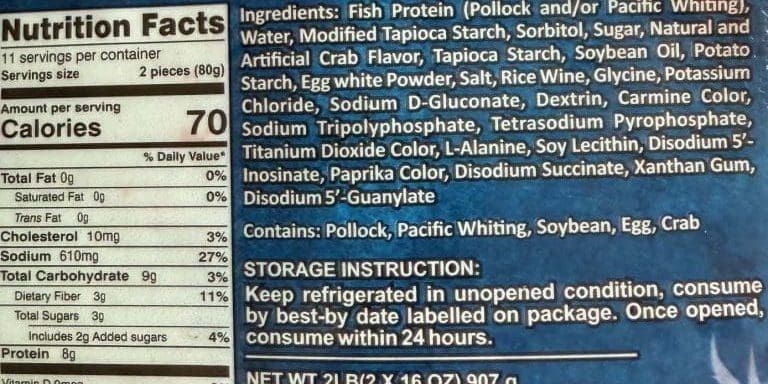Critical Thinking is defined by Oxford Languages as “the objective analysis and evaluation of an issue in order to form a judgement.” Critical thinking is a critical skill for effective decision-making and problem-solving. There is a deeper issue, “What happened to common sense?”
Now the reason why I bring this up is because ever since the streaming services on television, like Discovery+ and online like YouTube, I have been seeing many more advertisements. These advertisements have been for products like AG-1, Beyond Greens, Super Greens, Greens & Superfoods (green powder and dietary supplements). I have also had to watch commercials about fight diabetes with the GLP-1 weight loss drugs like Ozempic, Zebound and Mounjaro. I won’t name my main service provider, but I can’t believe the number of Disneyland commercials I have been forced to watch. Don’t get me wrong, I grew up in Southern California and with the Wild World of Disney.
These commercials got me thinking. What happened to the “WHY?”. I mean, it is great that the pharmaceutical companies develop and produce the many different supplements, multivitamins, and weight loss drugs to help us live our lives better. Green powders and multivitamins help us by correcting the deficiencies in our body. The Green powders supplement the missing sixteen fruits and vegetables to meet the recommended daily intake we are convinced are missing. If there is no way to eat the recommended daily intake of sixteen fruits and vegetables daily and the best way is to buy these supplements, then the question is “WHY” is it recommended that we eat this daily. Any bit of common sense will tell you that this does not make sense. Except to sell a product.
Good sales techniques are to convince a customer that they need the product, that it is better to buy now before the price goes up, buy a product in bulk to save more or that you desperately need the product. Back to the green powders example, this is where the second “Why” comes into play. What causes us to have such major deficiencies in our nutrition.
One possible example that is not stressed enough is that the major of the ultra-processed food that we eat is so nutrient lacking that we should buy these supplements to make up for the deficiencies. This sounds really good for the pharmaceutical and food companies’ profit revenues. The business strategy is to have the vast amount of consumers that don’t know better buy ultra-processed foods that are nutrient-lacking. Our bodies are complex machines. What do you think happens if you eat foods are have low nutrient value or lacking any real substance? The answer is that you buy and eat more food. “Why O Why” did I not invest in these food companies?
It doesn’t end there. Of course, your grocery budget goes up. You probably can’t figure out why you spend so much on groceries each month. You can’t figure out why you are constantly hungry. But now you are worried about being deficient in the nutrients that your body really needs.
Overwhelmed by the multiple commercial ads that repeat the same concept, FEAR. Fear that you are deficient. Fear that you are not getting the daily requirements of vitamins. Fear that you need to buy these special supplements and superfoods to live a healthy life. Fear that you need to spend more money.
Meanwhile, common sense or critical thinking never kicks in. We don’t ask ourselves the “Why?”. Why are we deficient? Is it because of the ultra-processed foods, the so-called food that we eat. The food that really does nothing for us except make us want to eat more food. Not asking the question is what leads to bad health and to be perfectly honest, the large amounts of wasted money we flush down the toilet every month.
I feel that I cannot continue without telling you something that you will not hear from the pharmaceutical and supplement companies. “Thank You!” The profit margins of pharmaceutical and supplement companies over the last five years were compared. Pharmaceutical companies had a significantly higher median in gross profit and EBITDA margins (76.5%) than the U.S. supplement companies with an average profit margin of 38%. (*EBITDA means the earnings before Interest, Taxes, Depreciation and Amortization). That is reported combined earnings of $81.9 billion in 2022 by the U.S. pharmaceutical companies. The supplement industry is expected to reach $34.1 billion in profits this year.
What if this could all (maybe not all) be corrected by staying away from the ultra-processed foods and eating nutrient dense whole foods.
I haven’t even gotten to the topic of the GLP-1 drugs that are a miracle cure for those suffering from Type-2 Diabetes, Pre-Diabetes or maybe you just want to lose some stubborn weight. Once again, the pharmaceutical companies thank you greatly. What is better than having the majority of the U.S. consumers having to take a GLP-1 for their increase diabetes issues or just an overwhelming need to continue to eat nutrient foods and take a shot or a pill to lose the weight and stop the food cravings. The best part, according to the pharmaceutical companies (not me), is that when you stop taking the GLP-1 drugs, the drug mechanism that helps blood sugar control, weight loss and heart and kidney protection will stop. Your medical condition may worsen; weight gain returns and your risk for serious issues may increase. You will be a customer for life. “There is nothing better than having a return customer” was never said by any drug dealer ever.
But once again, I beg you to use your common sense and a little critical thinking. If you never stop the habits that got to into the unhealthy living in the first place, then what good is taking a drug that only masks the symptoms and lowers the blood markers or biomarkers. Why should we correct our eating habits when we can make the pharmaceutical and supplement companies rich? For most, we know that we are not eating healthy when we are picking up fast food or the premade foods from the supermarket. But the changes in our body do not happen overnight. Our bodies are slowly losing the fight to maintain our health and then the biomarkers change. We get the warning from our doctors that we need to fix the problem. The only problem is that the doctor doesn’t talk to us about healthy eating habits. And why should they, most doctors have only 16 hours of class time on nutrition. How many hours of information do they get about the latest GLP-1 medications or statins? How much money goes into the lobbying of pharmaceuticals? How much money do the food manufacturers spend on lobbying the Federal government when it comes to the food pyramid?
Somewhere a long the line, I wanted to say the American public, but you can see this in other countries too, we stopped using our common sense. We stopped using critical thinking. We took what we were given as fact without asking the critical question. “Just because we can, does it mean we should?”
I will leave you with one last thought. Gluttony is considered one of the seven deadly sins, characterized by the overindulgence of food and drink, leading to a lack of self-control and prioritization of physical pleasures over spiritual well-being. There is nothing wrong with enjoying yourself once in a while, but that once in a while should be once a year, not daily or even once a week as a so-called cheat day.




